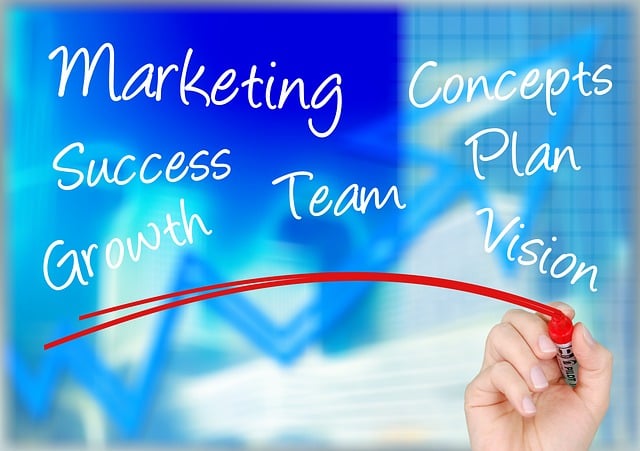Digital Twin technology powered by AI chatbots is transforming businesses, offering real-time simulations for holistic operation views. Integrating AI solutions like OpenTable's natural language processing chatbots optimizes processes from reservations to supply chains, leading to improved efficiency, enhanced customer experiences, and accelerated growth. In the hospitality industry, these integrations redefine online reservations with 24/7 personalized service, predictive maintenance, and resource optimization through digital twins. However, challenges include data privacy, security, and significant investments in technology development.
“Unleash the power of digital transformation with AI Business Digital Twin Technology, a game-changing approach redefining industries. This comprehensive guide explores how AI and digital twins are revolutionizing business operations, particularly in hospitality.
We delve into the intricacies of this technology, focusing on its potential through AI chatbot integrations with OpenTable. By understanding the benefits and challenges, businesses can harness digital twins to enhance customer experiences, optimize processes, and stay ahead in a competitive market.”
- Understanding AI Business Digital Twin Technology: A Comprehensive Overview
- The Role of AI Chatbot Integrations in Revolutionizing OpenTable Experiences
- Benefits and Challenges: Implementing AI Digital Twins in the Hospitality Industry
Understanding AI Business Digital Twin Technology: A Comprehensive Overview

AI Business Digital Twin technology is a game-changer, offering a comprehensive view and management of business operations through digital replicas. This innovative approach leverages AI chatbots to create interactive, real-time simulations of various business processes, from restaurant reservations (as seen with OpenTable integrations) to complex supply chain networks. By digitizing and mirroring physical assets and processes, companies can optimize performance, predict outcomes, and make data-driven decisions faster than ever before.
The power lies in the integration of AI chatbots that provide dynamic updates and engage in conversations about the digital twin. This interactivity allows stakeholders to explore “what-if” scenarios, test changes, and gain insights into operational interdependencies. With such advanced simulations, businesses can identify bottlenecks, improve efficiency, enhance customer experiences (like personalized reservation suggestions), and ultimately drive growth and competitiveness in an ever-evolving market landscape.
The Role of AI Chatbot Integrations in Revolutionizing OpenTable Experiences

In today’s digital era, AI chatbot integrations with OpenTable are transforming the way users interact with restaurant reservation platforms. These advanced chatbots leverage natural language processing to understand and fulfill customer inquiries in real-time, from providing menu recommendations based on preferences to offering dynamic pricing information. By integrating AI chatbots, OpenTable enhances user experiences by delivering personalized interactions that feel almost human, all while streamlining operations behind the scenes.
This technology allows for 24/7 customer support, instant booking confirmations, and even post-dinner feedback collection. Chatbots can learn from each interaction, continuously improving their responses to better match customer needs. As a result, AI chatbot integrations with OpenTable foster stronger connections between restaurants and diners, revolutionizing the entire dining experience.
Benefits and Challenges: Implementing AI Digital Twins in the Hospitality Industry

Implementing AI digital twin technology in the hospitality industry offers numerous benefits, enhancing customer experience and operational efficiency. Through AI chatbots integrated with platforms like OpenTable, hotels can provide 24/7 personalized service, instantly addressing guest queries and reservations. This ensures a seamless pre-stay experience, fostering guest satisfaction and loyalty. Moreover, digital twins enable predictive maintenance of facilities, minimizing downtime and optimizing resource allocation. By simulating various scenarios, hotel managers can anticipate demand fluctuations, efficiently staffing and planning events.
However, challenges exist in adopting this technology. Data privacy and security are paramount concerns, as AI models rely on vast guest data. Ensuring transparency and obtaining informed consent for data usage is crucial to maintaining customer trust. Additionally, creating accurate digital twins requires significant investment in data collection, model development, and ongoing refinement. The complexity of integrating AI chatbots with existing reservation systems can be a hurdle, necessitating collaboration between technology providers and hospitality experts.
AI digital twin technology is transforming industries, and as demonstrated by AI chatbot integrations with OpenTable, its potential in hospitality is profound. By leveraging digital twins, businesses can enhance customer experiences through personalized interactions and streamline operations with data-driven insights. While challenges exist, the benefits—from improved efficiency to enhanced guest satisfaction—make AI digital twin technology a game-changer worth embracing. As we navigate this evolving landscape, the future of hospitality promises to be smarter, more dynamic, and ever more tailored to individual needs.
